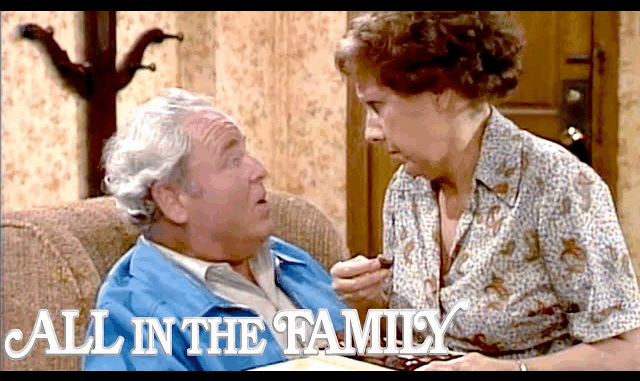
When All in the Family first aired on CBS in January 1971, few could have predicted the seismic shift it would trigger in American television. Bold, confrontational, and unapologetically honest, the show shattered the safe, sanitized mold of the family sitcom and replaced it with something bracingly real.
At the center of the series was Archie Bunker, a blue-collar, working-class man from Queens, New York, played by Carroll O’Connor. With his armchair throne, gruff voice, and deeply entrenched prejudices, Archie was both the face of a generation and a lightning rod for controversy. Yet what made the show brilliant was not just its depiction of Archie’s outdated views—it was the way it held a mirror up to society, forcing viewers to confront their own assumptions.
Created by Norman Lear and based on the British sitcom Till Death Us Do Part, All in the Family tackled issues that were previously taboo in prime-time television: racism, sexism, homosexuality, abortion, the Vietnam War, and more. Through Archie’s clashes with his liberal son-in-law Mike “Meathead” Stivic (Rob Reiner), the show sparked conversations in living rooms across America, encouraging a level of discourse rarely seen on TV before or since.
But All in the Family wasn’t just controversial—it was also immensely popular. The show topped Nielsen ratings for five consecutive seasons and won numerous Emmy Awards. Jean Stapleton’s portrayal of Edith Bunker, Archie’s long-suffering but sweet-natured wife, brought warmth and humanity to the show’s often tense confrontations. Sally Struthers as Gloria added depth and generational complexity, while Reiner’s Mike stood as the voice of a changing America.
Perhaps its greatest legacy is the path it paved for future shows. Without All in the Family, there would be no The Jeffersons, Maude, or even more modern successors like Roseanne and Modern Family. Lear’s groundbreaking work proved that television could be more than just entertainment—it could be a force for social change.
More than 50 years later, All in the Family remains as relevant as ever. In an era still grappling with polarization and cultural conflict, the show’s fearless storytelling reminds us that sometimes the most uncomfortable conversations are the most necessary.
As Norman Lear once said, “We just wanted to make people laugh—and maybe think a little.” With All in the Family, they did both—brilliantly.
